Glasgow RICO Act Lawyer, West Virginia
Sponsored Law Firm
-
 x
x

Click For More Info:
-
The Law Offices of Claude S. Smith III
805 Bigley Avenue Charleston, WV 25302» view mapCriminal Defense Law Working With Clients One On One
As your attorney, I will make sure you know that I am here for you. I will keep you updated on your case as it progresses.
800-936-8471
Not enough matches for Glasgow RICO Act lawyer.
Below are all Glasgow Criminal lawyers.
Ronald N. Walters
✓ VERIFIEDRon has, over the last decade, assisted clients by planning and designing settlements to address future needs and ensure any government benefits are p... (more)
Claude S. Smith, III
✓ VERIFIEDWhether you have suffered an accident while on the job or suffered an injury during a car accident or semi truck accident, The Law Offices of Claude S... (more)
Traci L. Wiley
Todd M. Sponseller
Christine D. Wallace
Jacqueline Ann Hallinan
FREE CONSULTATION
CONTACTFREE CONSULTATION
CONTACT Claude S. Smith, III Charleston, WV
Claude S. Smith, III Charleston, WV Practice AreasExpertise
Practice AreasExpertise


